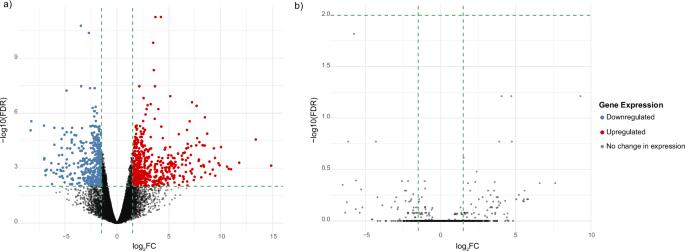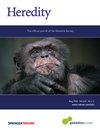Differences in gene expression and genetic variation underlying preference-performance mismatches: insights from a specialized native herbivore on an invasive toxic plant
IF 3.9
2区 生物学
Q2 ECOLOGY
引用次数: 0
Abstract
Specialist phytophagous insects have a narrow hostplant range for optimal development and survival. Mismatches between female oviposition preference and larval performance can lead to high fitness costs. Understanding the mechanistic basis of this decoupling can help us understand evolutionary constraints and aid in predicting outcomes of error-prone oviposition. We investigated the causes for preference-performance mismatches in a specialist native herbivore laying eggs on an invasive toxic plant. Transcriptomic analyses revealed host-plant-specific gene expression signatures in larvae feeding on different plants, while there was no differential gene expression in gustatory/olfactory organs of adult females with different oviposition preferences. However, genomic analysis revealed significant genetic differentiation in several genes underlying signal transduction in adult females with different oviposition preferences. The larvae feeding on toxic plants showed lower expression of specialized detoxification enzymes and higher expression of general digestive enzymes, indicating the inability of larvae to detoxify toxic compounds present in the toxic plants. We additionally found that genes related to successful detoxification and adaptive feeding were enriched in larvae feeding on native plants, while genes related to toxic responses, apoptosis, and accelerated development were enriched in larvae feeding on toxic plants. Our findings dissect the underlying mechanisms behind a preference-performance mismatch, quantifying the impact of error-prone oviposition on larval performance in a specialized species interaction.

偏好-表现不匹配背后的基因表达差异和遗传变异:来自入侵有毒植物的特殊本地食草动物的见解。
专门的植食昆虫有一个狭窄的寄主范围,以获得最佳的发育和生存。雌性产卵偏好和幼虫表现之间的不匹配会导致高适应成本。了解这种解耦的机制基础可以帮助我们理解进化约束,并有助于预测容易出错的产卵的结果。我们调查了在入侵有毒植物上产卵的专业本地食草动物的偏好-性能不匹配的原因。转录组学分析揭示了取食不同植物的幼虫具有寄主-植物特异性基因表达特征,而不同产卵偏好的成年雌性的味觉/嗅觉器官的基因表达没有差异。然而,基因组分析显示,在不同产卵偏好的成年雌性中,信号转导的几个基因存在显著的遗传分化。以有毒植物为食的幼虫,其特殊解毒酶的表达较低,而一般消化酶的表达较高,表明幼虫对有毒植物中的有毒化合物没有解毒能力。我们还发现,与成功解毒和适应性取食相关的基因在取食原生植物的幼虫中富集,而与毒性反应、凋亡和加速发育相关的基因在取食有毒植物的幼虫中富集。我们的研究结果剖析了偏好-性能不匹配背后的潜在机制,量化了在特殊物种相互作用中容易出错的产卵对幼虫性能的影响。
本文章由计算机程序翻译,如有差异,请以英文原文为准。
求助全文
约1分钟内获得全文
求助全文
来源期刊

Heredity
生物-进化生物学
CiteScore
7.50
自引率
2.60%
发文量
84
审稿时长
4-8 weeks
期刊介绍:
Heredity is the official journal of the Genetics Society. It covers a broad range of topics within the field of genetics and therefore papers must address conceptual or applied issues of interest to the journal''s wide readership
 求助内容:
求助内容: 应助结果提醒方式:
应助结果提醒方式:


